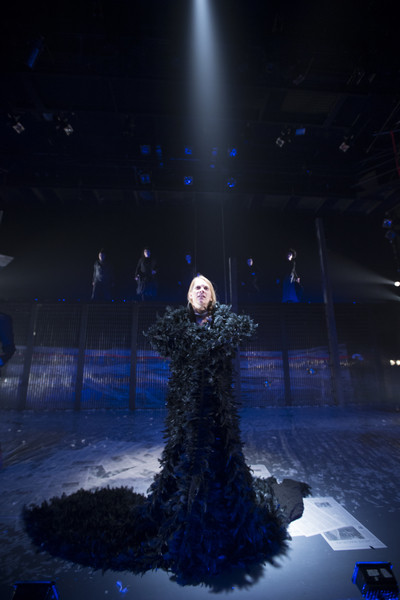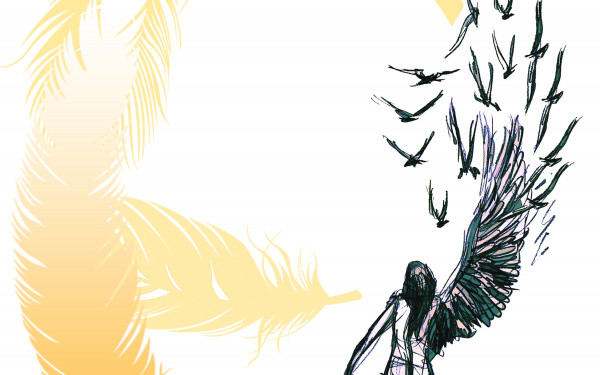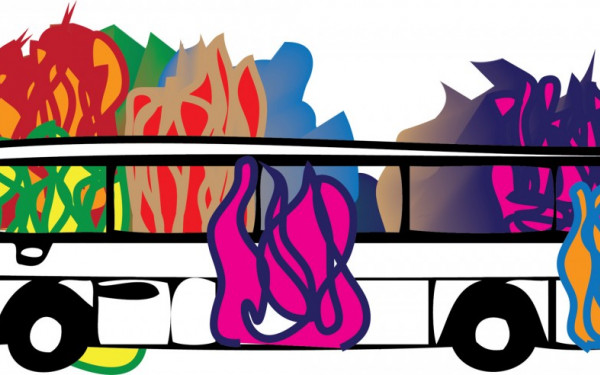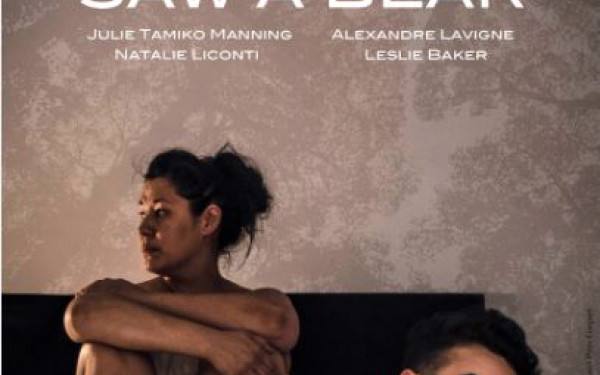Exposing the Psychological Norms Wrought By Rape Culture
There’s something to be said for having fun at a play. There’s something to be said about tearing up at one. There’s something to be said for excitement and suspense. But what do you say when a play gives you all these things, but then goes on to impact you further, in a way that you can’t even put your finger on? Where do you start?
This past Thursday, Erin Shield’s If We Were Birds opened at the Centaur Theatre in the Old Port tackling what is unfortunately the age-old topic of rape and sexual assault. How does a cast take on such a topic on stage where the action is live and the magic of cinema unavailable? They do it, however uncomfortably, through their art.
One rape scene alone suffices in making a play-going experience uncomfortable, and If We Were Birds had quite a few.
This could have made the play unbearable and simply too much to take in, but the scenes were shown beautifully veiled by a symbolism and complexity that made them, although intensely tough, watchable enough to sink in and truly affect the audience.
Besides the principal storyline, the subplot of the chorus of birds/slaves told five other tragic stories.
Although these tales were not portrayed visibly, Shield’s exquisite writing and the flawless delivery of the actors painted the painful pictures just the same.
The stories of the slaves remove you from ancient Greece and drop you into different times of war in which each woman describes in gruesome detail the circumstances of her rape and the men who inflicted it upon her.
But it was not these descriptions which were most unsettling to me. Instead, I found myself shifting uncomfortably in my seat as they described how they would destroy these men.
Their depictions were physical and spared no detail of how they would inflict pain until it matched that of the generations of women whose lives men had destroyed.
This role reversal was quite strange; it was unnerving to see women speaking with such violence and cruelty.
It got me thinking—why was that harder for me to listen to than the stories of the women’s rapes? Not that those stories weren’t heartbreaking and gut-wrenching to experience, but there was something uncanny about these awful promises they made to men. I realized that it was the unfamiliarity.
We are not accustomed to hearing such horrible things done to male bodies. When it comes to women, though, we hear these stories every day. They’re in history. They’re on the news. They’re part of our lives. (This is especially true in cinema, where brutal violence towards women is often acceptable with a PG-13 rating, but show a woman experiencing pleasure and the film will get the heavy censorship of an NC-17 rating).
When I realized this, I couldn’t believe it. To say I was upset would be putting it mildly, but that’s what good art does. An artist throws these issues in your face as much as you might hate them for it and makes you not just look, but see. It was eye-opening to say the least, confronting this subconscious bias.
If We Were Birds was truly rewarding. The brilliance of the aesthetic experience—the lights, sound and set—was matched perfectly with the beauty and horror of the story it told.
Talkbacks will be held after each performance to encourage dialogue.
If We Were Birds // Oct. 10 – 19 // Centaur Theatre (453 St. François-Xavier St.) // $18 students (Talkbacks will be held after each performance to encourage dialogue.)







_600_375_90_s_c1.jpg)